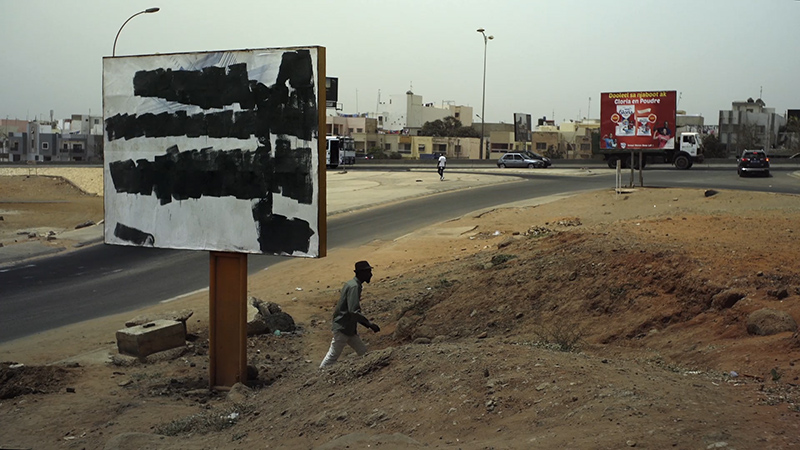Parts 1 and 2 of an extensive dialogue between Vincent Meessen and Olivier Marboeuf, released in three parts and published every two weeks
In the course of this three-part conversation, Vincent Meessen and Olivier Marboeuf (who is one of the producers of Juste un Mouvement) discuss the limits of documentary cinema, imagining the film as a space of justice and reparation always incomplete, question the speculative reconstruction of a memory and the alternative narratives of aesthetic and political Modernity.
“Omar is dead!”, a voice cried out in Dakar, 11 May 1973. The eldest of the Blondin Diop family, a young militant philosopher, and the articulate Maoist in Jean-Luc Godard’s La Chinoise had allegedly committed suicide in his Gorée Island prison cell. His family and friends did not believe a word of it, demanding that light be shed on this political crime. A phantom haunts the Senegalese capital, itself in a state of unrest.
Juste un Mouvement, the last feature length film by the Belgian artist and filmmaker Vincent Meessen, is a free take on La Chinoise, a Jean-Luc Godard movie shot in 1967 in Paris. Reallocating its roles and characters fifty years later in Dakar, and updating its plot, this new version offers a meditation on the relationship between politics, justice and memory. Although not anymore alive, Omar Blondin Diop, the only actual Maoist student in the original movie, now becomes the key character. Shot exclusively with non-professional actors and including Omar Blondin Diop’s brothers and friends, everyone in this film performs themselves: a filmmaker, a rapper, a poet, a Chinese worker, a Shaolin master, a Senegalese intellectual, the Minister of Culture of Senegal and the Vice President of the People’s Republic of China.
